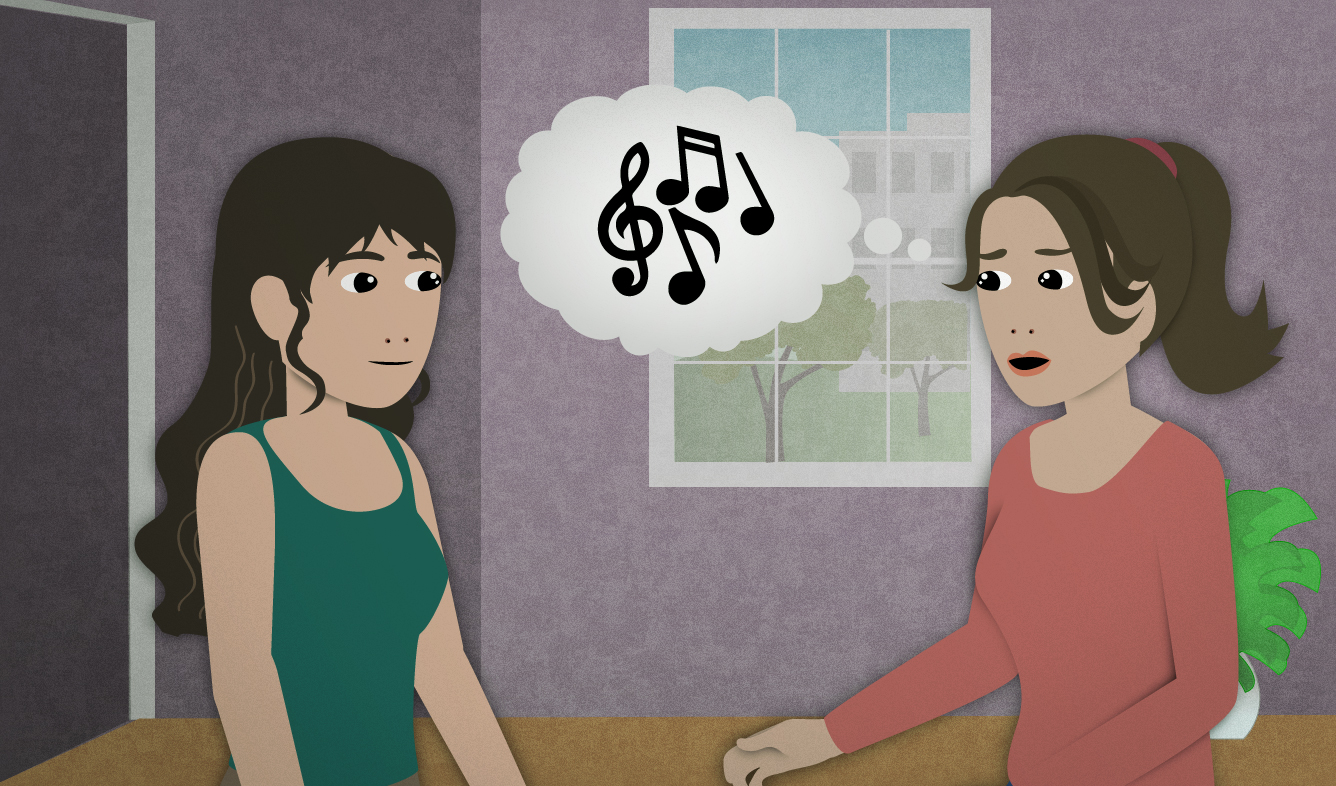“I've had this song stuck in my head for two days!”
You heard a song two days ago, and since then you've been thinking about that song over and over again. You make this complaint to your friend.
I've had this song stuck in my head for two days!
Want Video and Sound? Follow us on YouTube

this (person/thing)
In the example above, the speaker uses "this" instead of "a". There's a small difference between the two. When you say "this ___" it sounds like you're talking about one specific thing. "A ___" is more general.
You use "this ___" instead of "a" or "the" when you're introducing something specific that you're going to talk about. It's usually used at the beginning of a story or explanation. For example:
Amy and I were sitting there talking and this guy I know walked by.
I've had this song stuck in my head for two days!
Today I was talking with this girl at work who just got back from maternity leave.
In all of these examples, the speaker will continue by telling a story about that topic.
People only use "this ___" in this way in casual spoken English.
have (a song) stuck in (someone's) head
When you "have a song stuck in your head", it means that you keep thinking about the song and can't stop playing it over and over in your mind.
The word "stuck" means "not able to get out". Some other ways that "stuck" is used include:
- get stuck in traffic
- be stuck between ___ and ___
- get stuck in the mud
- (food) gets stuck to the frying pan
To "have a song stuck in your head" is a continuing situation. If you want to describe how the situation started, you say that you "got a song stuck in your head".
